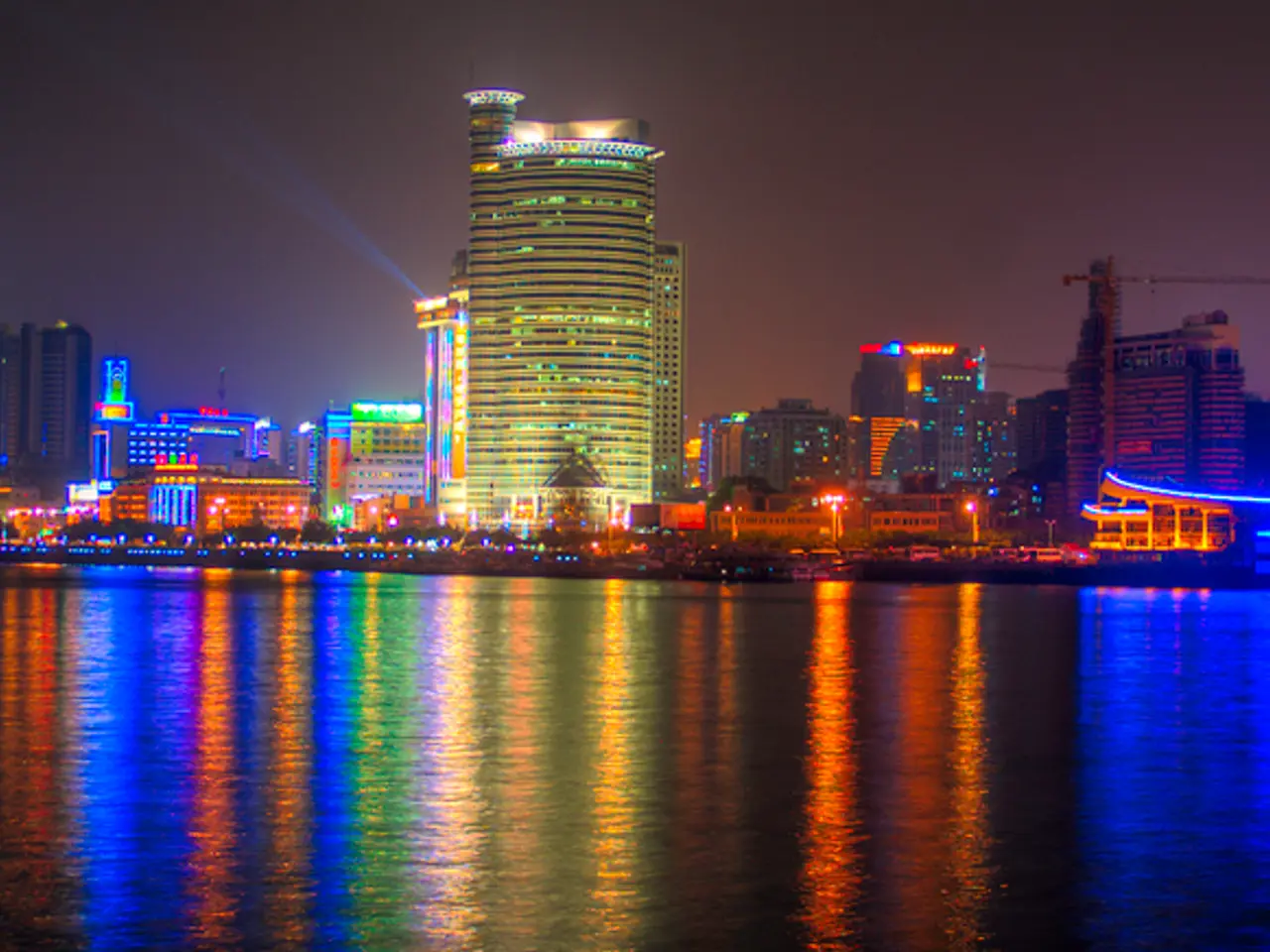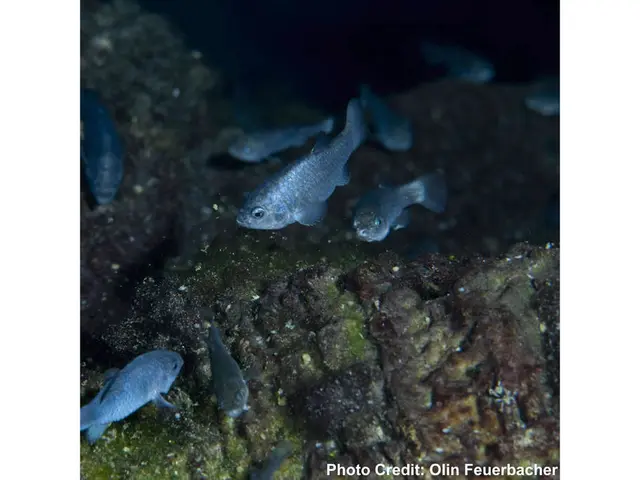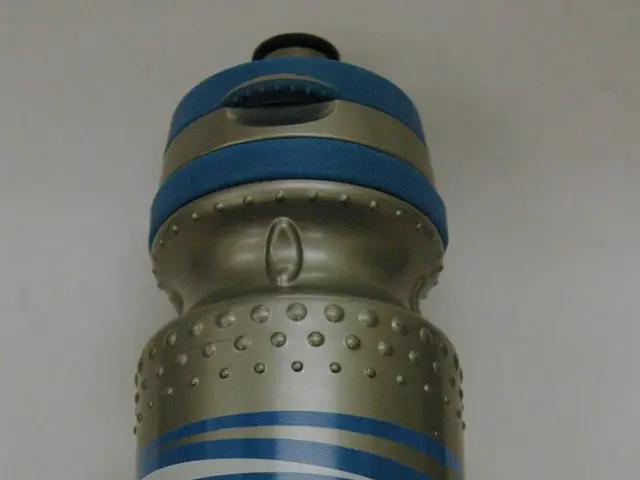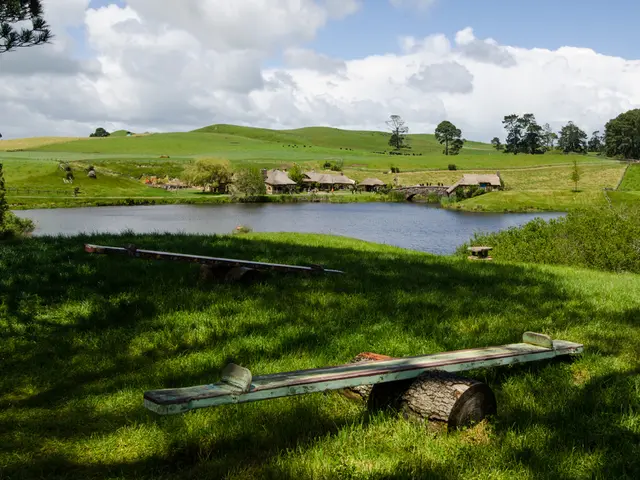Water Crisis in Berlin: The Struggle to Preserve Drinking Water Resources
In the heart of Germany, Berlin is implementing innovative ecological measures to manage its water resources, faced with urbanisation, climate change, and increasing demands from industries and agriculture.
Berlin's water supply primarily comes from groundwater beneath the city, naturally filtered and enriched with minerals over 10,000 years. However, less water is absorbed by the earth due to urbanisation. To combat this, small ecological measures such as planting trees, creating green gullies, and de-sealing pavement are being implemented.
The Spree's water supply has been topped up by groundwater pumped out during coal production in Lusatia, on the Polish border. However, this source will be reduced due to Germany's plan to phase out coal mining by 2038. The Berliner Wasserbetriebe (BWB), the state-owned water utility company, has drilled more wells and built nine underground wastewater storage facilities to compensate for this loss.
The BWB is also investing billions to upgrade its sewage treatment plants to reduce substances like trifluoroacetate (TFA), a toxic acid used in pesticides and pharmaceuticals. Additionally, the BWB and the Senate's Rainwater Agency are encouraging the creation of 'green roofs' on apartment blocks to absorb excess rainfall and cool the built environment.
The Rainwater Agency aims to make Berlin a 'sponge city', where rainfall seeps into the ground and is filtered gradually. Industrial farming and manufacturing businesses are using more water, while individual households are conserving it. Industrial farmers could significantly reduce water use by irrigating at night.
Severe conflicts over water usage and cost may occur without a solid plan in place. To address these conflicts, the proposed solutions focus on coordinated climate security approaches, policy coordination, and practical innovation. High-level forums like the Berlin Climate and Security Conference 2025 emphasise collaborative climate action to reduce resource-related conflicts, including water scarcity, by promoting integrated, multi-sectoral strategies and partnerships.
Individual households in Berlin can contribute to water conservation efforts by reducing water consumption through efficient use, supporting local water initiatives and policies, and participating in awareness campaigns and community-based actions that promote water conservation as a collective responsibility.
A tenth mega-tunnel, due to open next year, will be able to hold 17,000 cubic metres of rainwater. The Senate's Masterplan Wasser sets out 32 measures to protect and improve Berlin's water supply through 2050.
Climate change is causing hotter summers, more frequent droughts, and more extreme rainfall in Berlin, affecting its water supply. Private households in Berlin and Brandenburg pay a higher price for water compared to energy supply or manufacturing companies. Claudia Kemfert of DIW suggests water demand in Berlin, Brandenburg, and Saxony could be reduced by up to 16% if BWB raises extraction fees.
BWB spokesperson Hackenesch-Rump mentions that discussing price hikes is unpopular due to potential job losses in industry. Hackenesch-Rump suggests an open discussion about water usage and allocation may occur in the future.
In summary, the strategy combines high-level coordination and local individual action to address water usage conflicts exacerbated by climate change and competing demands. The emphasis on collaboration and integrated approaches indicates a framework where all sectors—government, industry, agriculture, and households—play defined roles in sustainable water management.
Read also:
- Citizen Thekla Walker, Minister, urges: "Let's face our responsibilities at home"
- Editorial Correspondence: Justifying the Elimination of a Program Earmarked for Reducing Our Own Carbon Footprint?
- Parliamentary proceedings in Germany's Bundestag this week
- Fracking Breakdown: Advantages, Drawbacks, and Financial Implications







